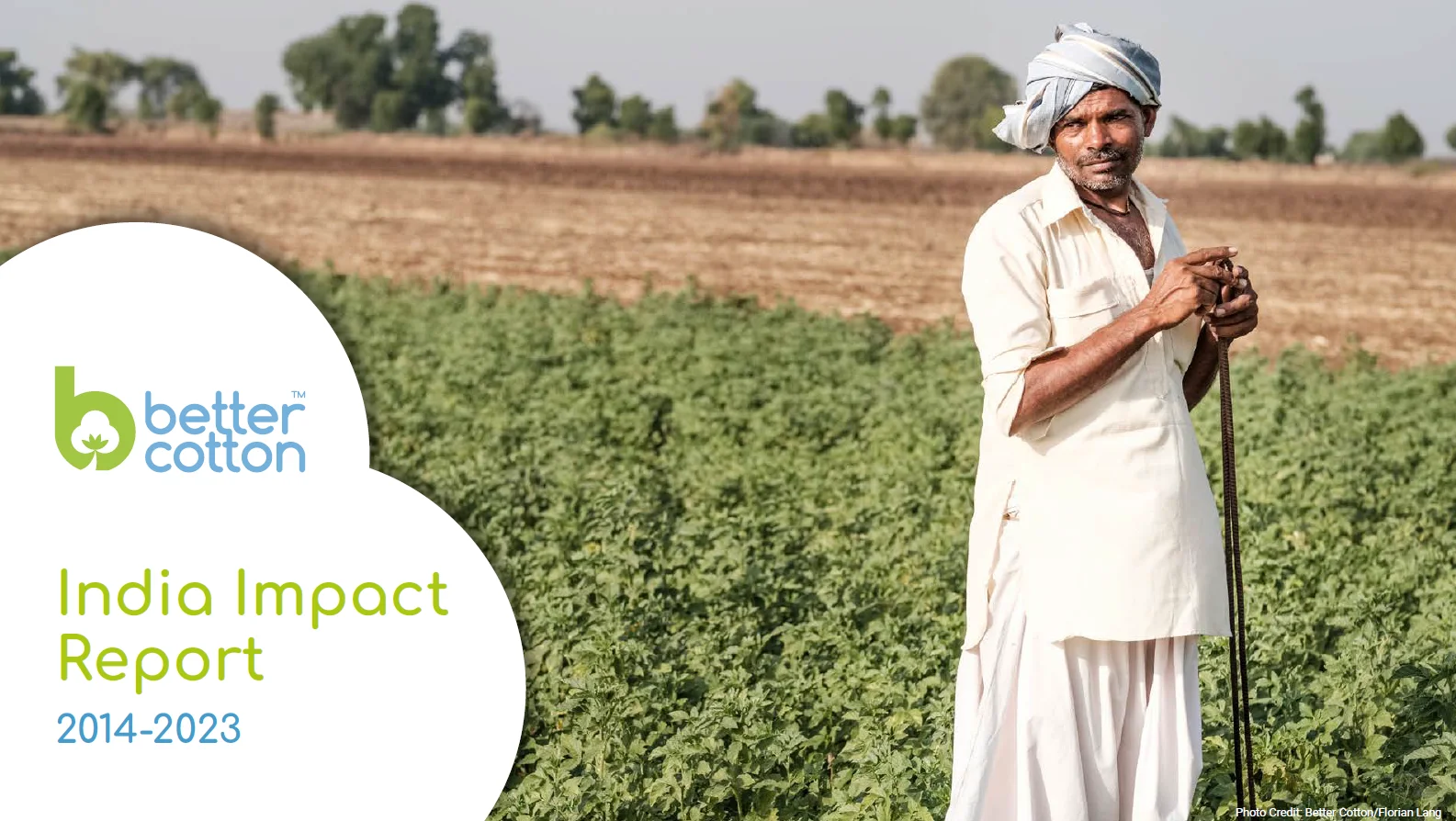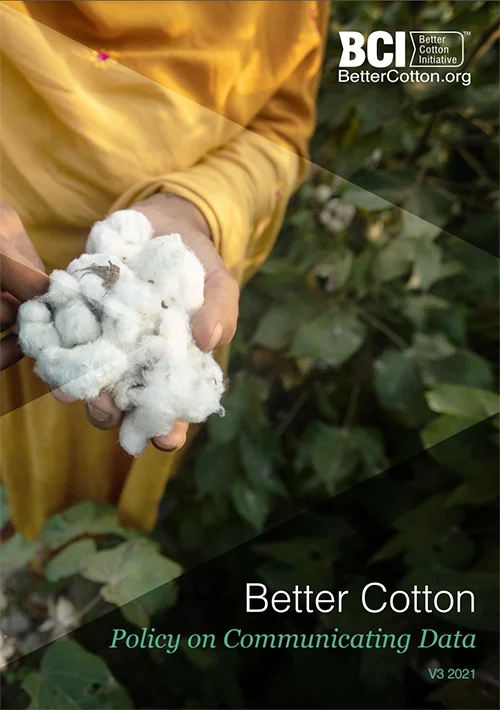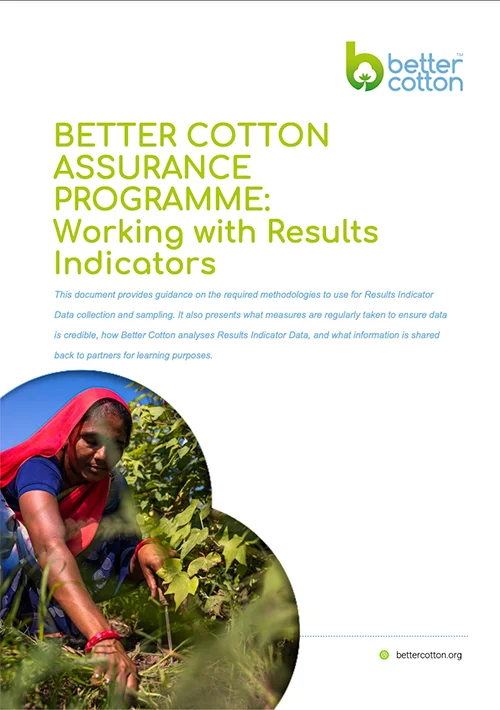How We Measure and Evaluate Impact
The Better Cotton Initiative (BCI) employs diverse research methods, collaborating with independent organisations and researchers to assess field-level impacts comprehensively. This approach ensures effective measurement of results and impacts at both scale and depth.
Research
Third parties, independent organisations or BCI itself conduct impact evaluations and in-depth studies to analyse the potential and real impact of BCI programmes.
Programme-Wide Monitoring
BCI and our Programme Partners collect information about our reach to assess progress made against targets.
Sampled Monitoring
BCI Programme Partners or third-party researchers assess the quantities of inputs used by farmers and adoption rates of key practices, together with socioeconomic and environmental outcomes, to determine to what extent capacity-strengthening activities and support lead to the desired changes.
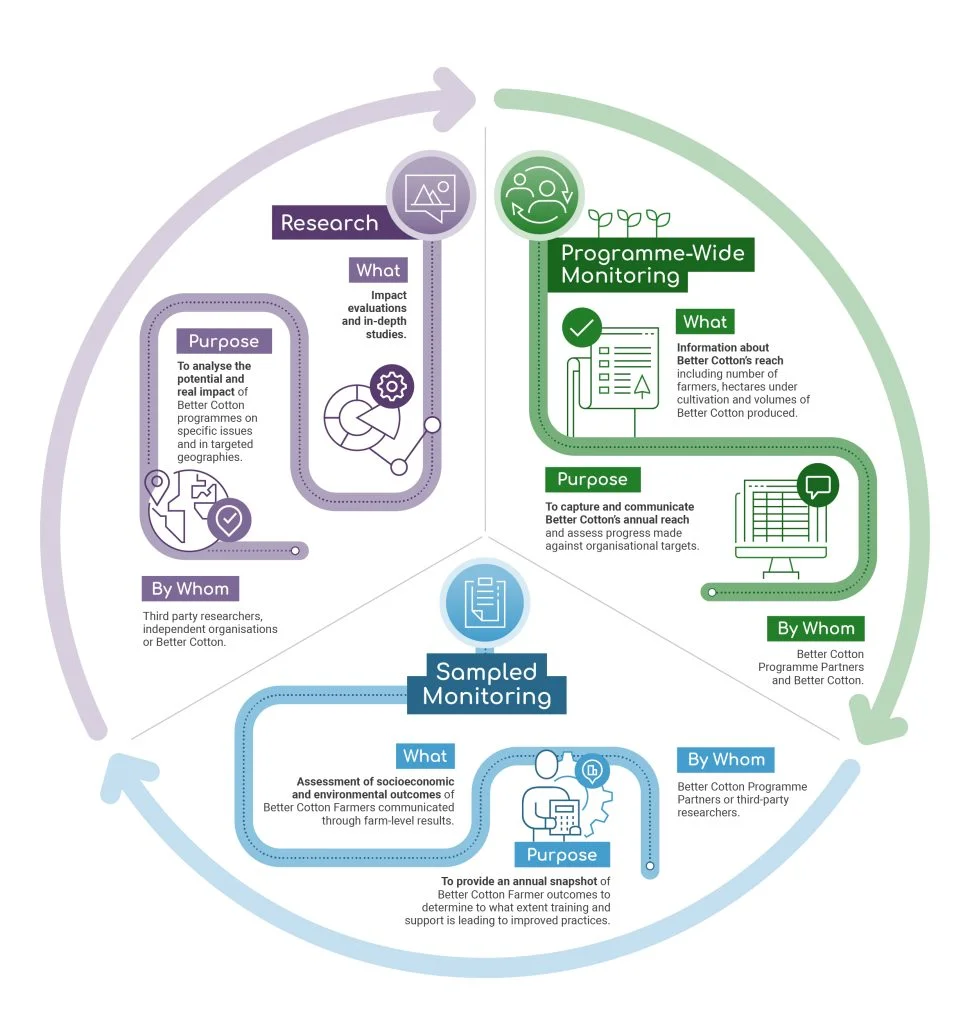
Impact Reports
You can learn more about the outcomes and impacts of the BCI programme in our latest Impact Report.
Or find all previous reports here.
Independent Research and Evaluation
BCI commissions independent studies using a variety of methods to understand the impact and effectiveness of BCI, the activities of our Programme Partners and the BCI Standard System. The research collects both quantitative and qualitative data to provide insights into the different aspects of change and how it has happened, along with comparing findings to the Results Indicator Data reported by farmers to check for general directional similarities
The research projects also allow for collecting qualitative feedback directly from farmers about their experience with BCI, providing valuable insights into our impact. The list below shows our research and evaluation outputs by the type of study. Directly below the list, the map allows you to search by location.
Towards sustainable cotton farming: India Impact Study – Wageningen University & Research | 2019 – 2022
A study completed by Wageningen University and Research from 2019 to 2022, explores how implementing the practices advocated by BCI leads to reduced costs and improved profitability for cotton farmers in three locations in the Indian regions of Maharashtra (Jalna and Nagpur) and Telangana (Adilabad).
Evaluation of the Early Impacts of BCI on Smallholder Cotton Producers in Kurnool District, India | 2015 – 2018
A three-year study of the early impacts of the Better Cotton Initiative on smallholder cotton producers in Southern India. The study showed an increasing adoption of practices promoted by BCI among the farmers in the programme.
This study collects data from treatment farmers before they joined BCI to create a baseline against which the progress and impact of the BCI programme can be evaluated in 2025-26.
BCI GIF Pilot to Test the Inclusion of Women Co-farmers Within BCI’s Quality Assurance Programme | 2021
This pilot tested the relevance and effectiveness of programme activities with co-farmers, measured impact emerging across BCI’s result indicators, and tested cost efficacy of inclusion of women co-farmers in BCI’s smallholder programmes.
GIZ Outcome Evaluation of Project in India, by AFC India Ltd | 2020
An evaluation to measure the attributional changes of the implementation of activities promoting BCI farming practices in the GIZ-funded project in Maharastra, India.
Promoting better farming practices in Maharashtra: ‘BCI’, sustainability and value added in the cotton economy.
This study examines the overall effectiveness, sustainability, progress towards, and likelihood of impact in accelerating BCI’s work supported by C&A Foundation.
Working Paper series by Copenhagen Business School Research
A study tracing the BCI Standard formulation process between 2003 and 2009.
An exploration of the significance of the BCI Standard Implementation Partners in India and Pakistan.
An empirical investigation of the effects of BCI in India and Pakistan | Article published in the Ecological Economics, Vol. 193 | March 2022
The Impact of Better Management Practices among Cotton Farmers in Punjab, Pakistan | 2021
Evaluation of the potential impact of best management practices imparted among BCI Farmers in Pakistan by rationalising the use of input resources. Paper commissioned by WWF Pakistan and published in the Journal of Agricultural Science in June 2021.
This case study looks at climate-smart agricultural practices implemented by BCI-ABR licensed producers in Brazil, provides in-depth information on the selected climate-smart agricultural practices, assesses their contribution to climate change mitigation, and finally determines the extent to which they have enabled BCI producers to adapt to consequences of climate change.
Taking into account BCI’s operations in Mozambique, this case study aims to analyse the extent to which implemented decent work-related activities are enhancing behavioural change in BCI’s influence areas of Nampula and Niassa; understand the triggers of behavioural change in terms of gender equality and child labour; and, to gather lessons learned to inform future strategies and replicate successful practices in similar contexts.
Women Workers in Global Value Chains: A Case Study of the Better Cotton Initiative in Pakistan, by Aarhaus University | 2018
An analysis of the gender dynamics in cotton production in Pakistan based on a study of women workers participating in the BCI value chain.
Rapid Assessment of Phasing out a Hazardous Pesticide in Dhoraji, Gujarat, by Outline India | 2017
A review of guidance provided by an Implementing Partner in India to the BCI Farmers in phasing out a hazardous pesticide.
BCI and Decent Work in India, Mali, and Pakistan | 2013
Executive summary of a report produced by Ergon Associates.
Farmer Stories
Learn more about the outcomes and impacts farming communities are experiencing by participating in the BCI programme.
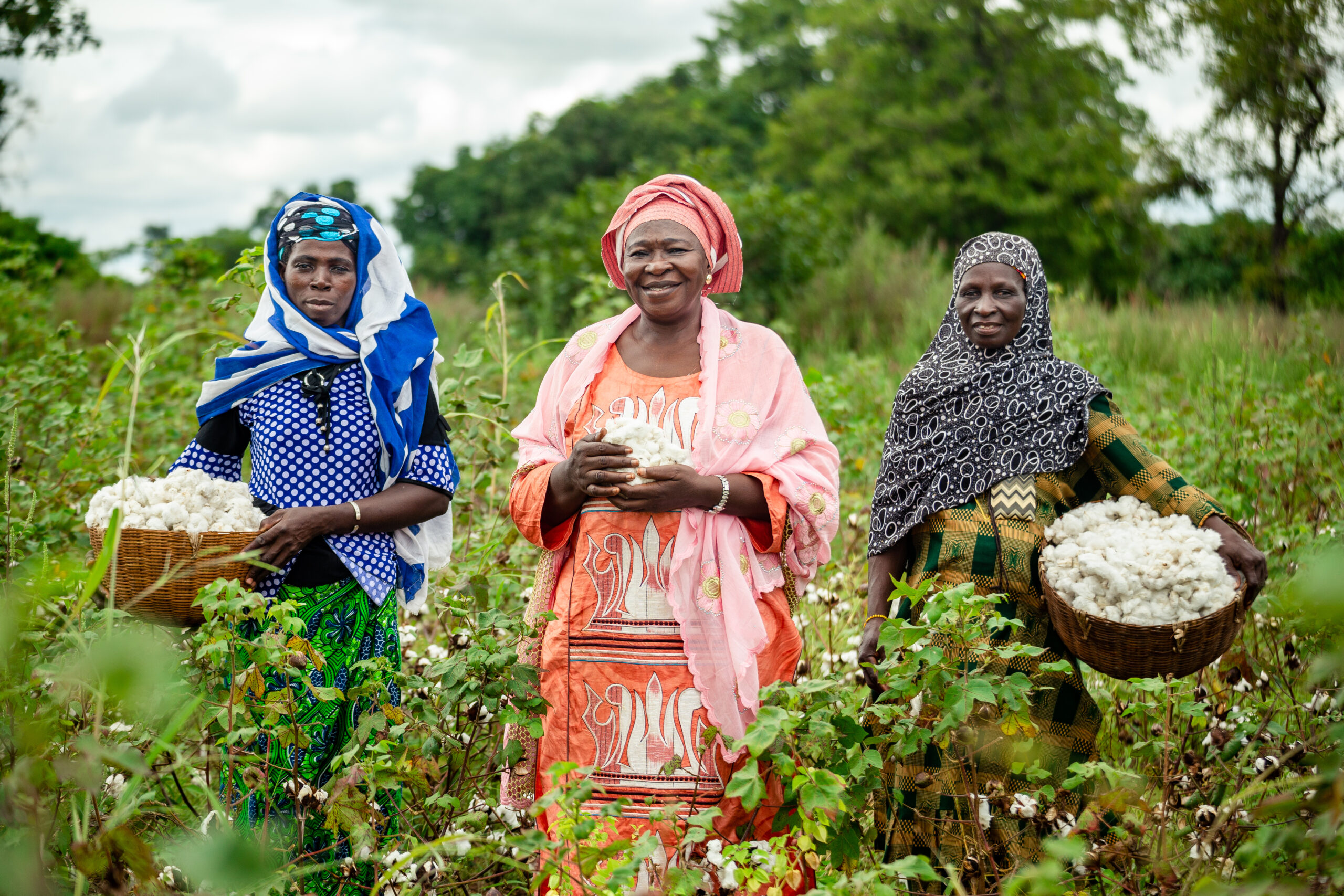

Industry-Wide and Other Collaborations
Delta Framework
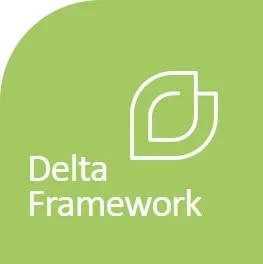

The Delta Framework project aims to create a uniform method for tracking and reporting the progress of farms in sustainable commodity certification programs. It includes standardized indicators to measure sustainability in cotton and coffee sectors. Learn more
Gold Standard
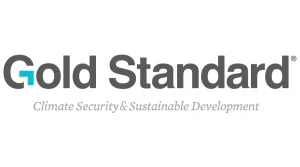

The Gold Standard sets the standard for climate and development interventions to quantify, certify and maximise their impact. Together we defined common practices to calculate carbon reductions and sequestration, that companies can then easily report against their Science Based Targets or other climate performance objectives. Learn More
SEEP
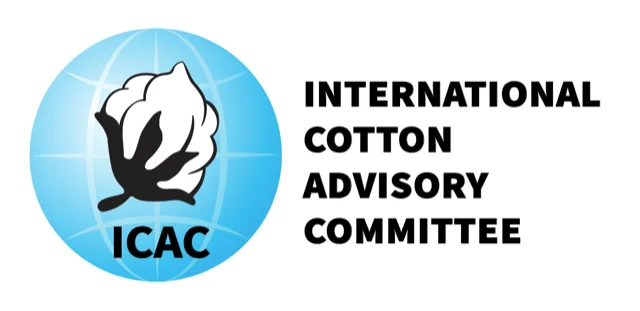

Our CEO sits on the International Cotton Advisory Committee’s expert panel on Social, Environmental & Economic Performance (SEEP). They offer science-based insights on global cotton production’s social, environmental, and economic impacts to the ICAC. Learn More
Cascale
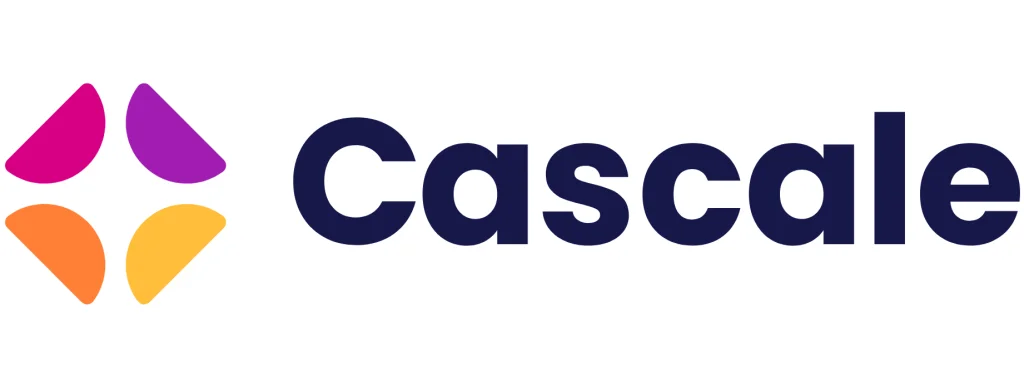

As a Cascale Affiliate Member since 2013, BCI aligns with Cascale’s vision and mission. Together, we strive for positive change, ensuring that the Higg Index accurately reflects BCI’s environmental impact. Learn More
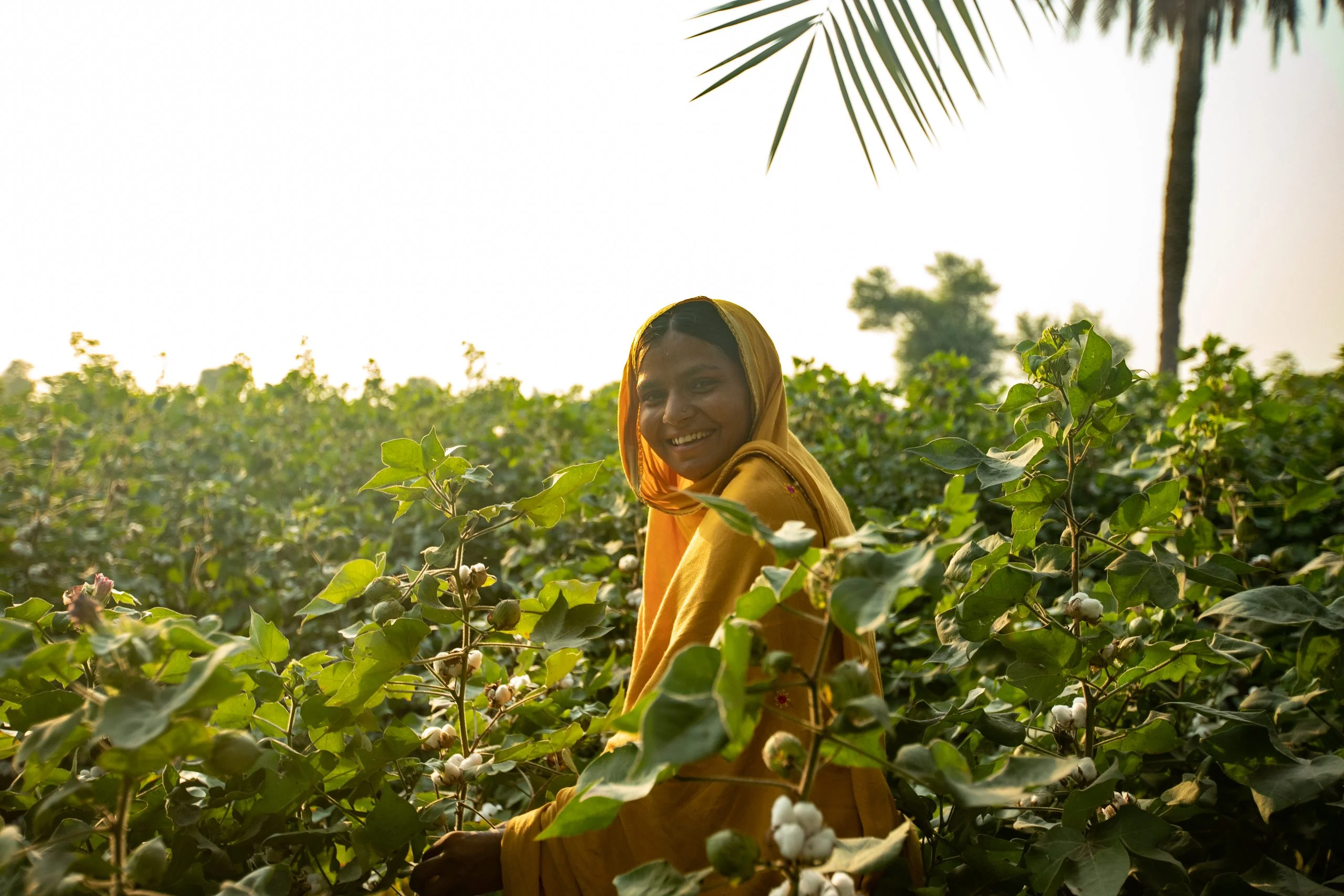

Policy on Communicating Data
We prioritise transparent communication of credible progress data to our members, partners, funders, farmers, and the public. The credibility of BCI relies heavily on reliable data, provided strategically throughout the cotton production cycle for effective use and learning within our network. Our Policy on Communicating Data outlines:
- Data types communicated by BCI
- Reasons for any data use limitations
- Timing and methods for data availability
Working with Results Indicators
The BCI Assurance Programme integrates Results Indicator reporting to measure sustainability improvements in all production areas. This guide outlines methodologies for data collection and sampling, ensures data credibility, analyses Results Indicator Data, and shares information with partners for learning purposes.
Results Indicator Data Management Process
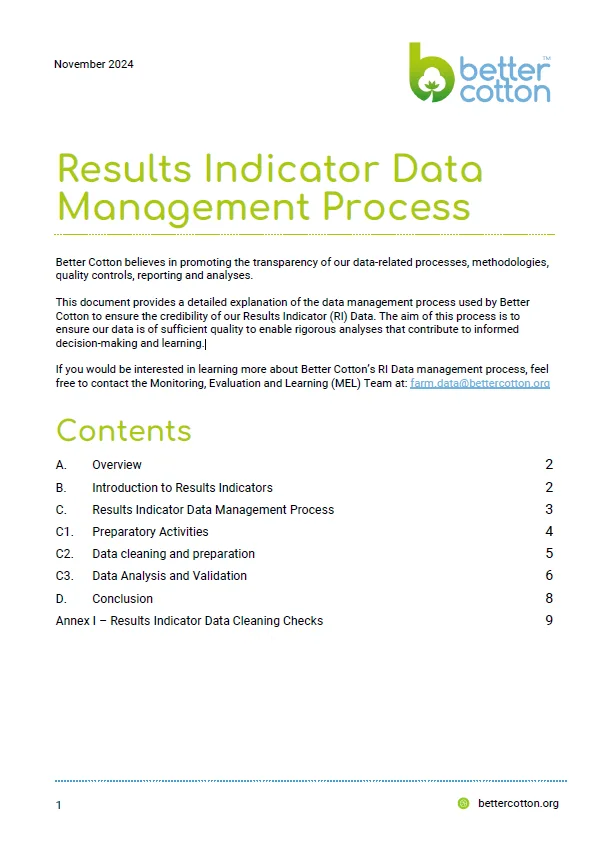

BCI believes in promoting the transparency of our data-related processes, methodologies, quality controls, reporting and analyses. This document provides a detailed explanation of the data management process used by BCI to ensure the credibility of our Results Indicator Data.
Contact
Do you have any questions about the Results & Impact of BCI?
Use our MEL option in the contact form.








































